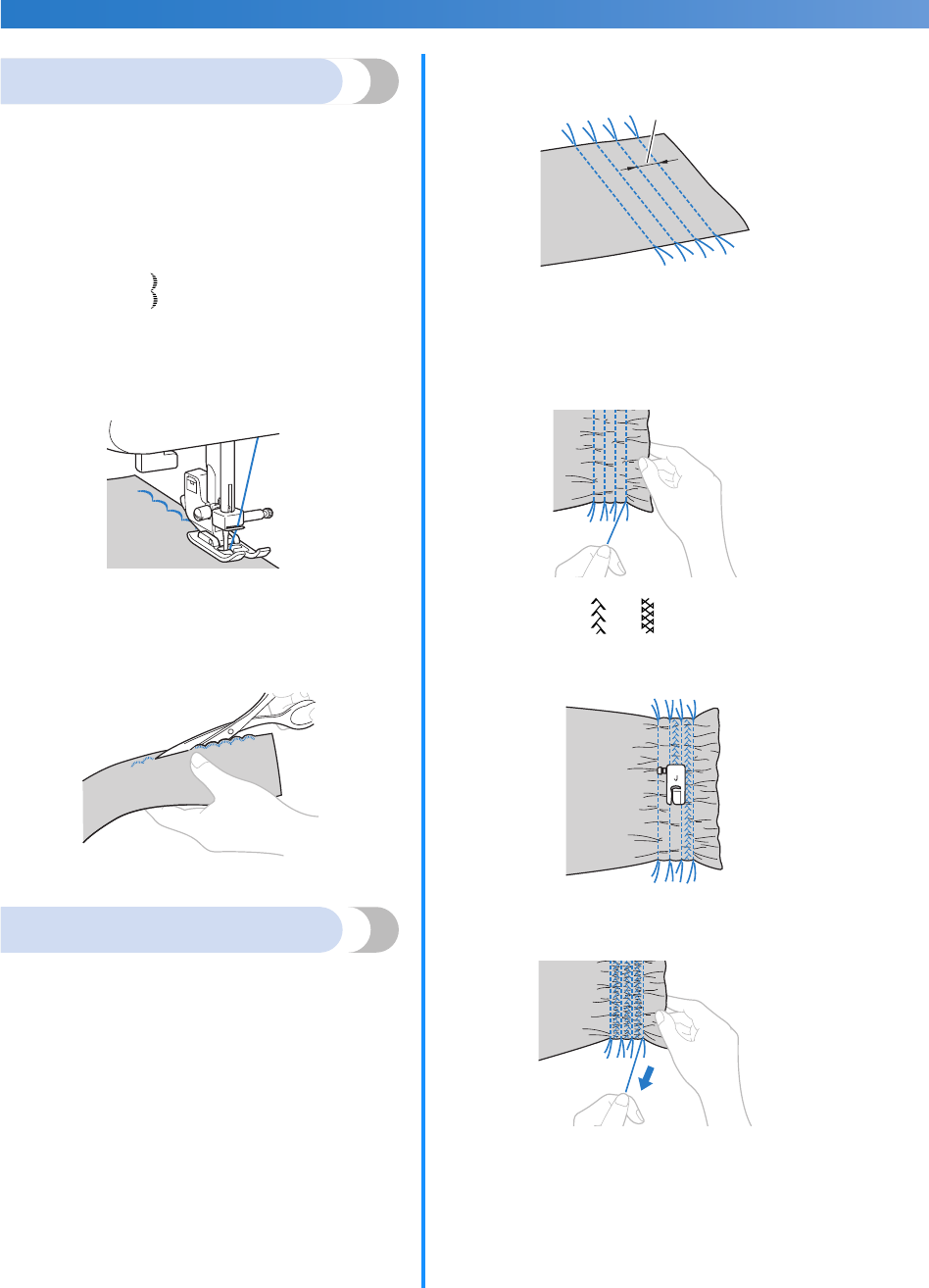
70
UTILITY STITCHES ———————————————————————————————————————————————————————————————————————————————————————————————————
——
Scallop stitching
The wave-shaped repeating pattern that looks like
shells is called “scalloping”. It is used on the collars
of blouses and to decorate the edges of
handkerchiefs.
a
Attach monogramming foot “N”.
b
Select stitch .
c
Stitch along the edge of the fabric, making
sure not to sew directly on the edge of the
fabric.
• For better results, apply spray starch onto the
fabric and press with a hot iron before it is
sewn.
d
Trim along the stitches.
• Be careful not to cut the stitches.
Smocking
The decorative stitch created by stitching or
embroidering over gathers is called “smocking”. It is
used to decorate the front of blouses or cuffs.
The smocking stitch adds texture and elasticity to
fabric.
a
Attach zigzag foot “J”.
b
Select the straight stitch, and then adjust the
stitch length to 4.0 mm (3/16 inch) and loosen
the thread tension.
• For details, refer to “Selecting a stitch”
(page 37) and “Thread tension” (page 41).
c
Sew parallel stitching at intervals of 10 mm
(3/8 inch).
a 10 mm (3/8 inch)
• Do not sew reverse/reinforcement stitches or
cut the thread.
d
Pull the bobbin threads to create gathers.
Smooth the gathers by ironing them.
e
Select stitch or .
f
Stitch between the straight stitches.
g
Pull out the threads for the straight stitches.
1


















